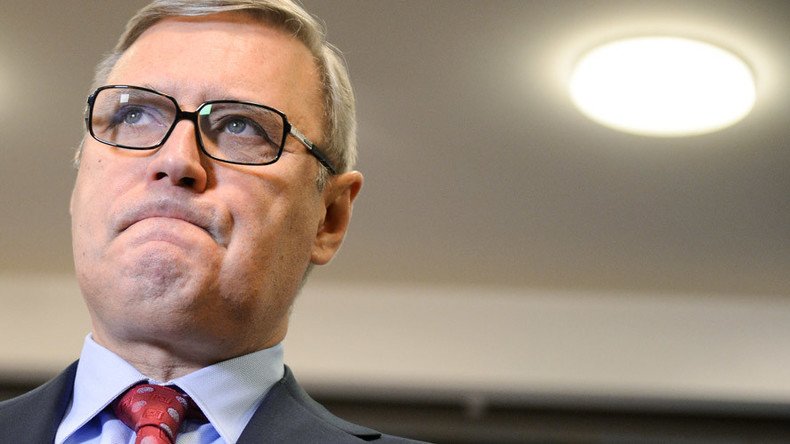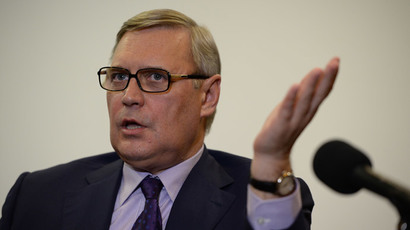Opposition party PARNAS loses senior members as ex-PM Kasyanov keeps chairmanship

Many high-placed members have left the opposition Party of People’s Freedom, or PARNAS, in protest at the course chosen by former Russian Prime Minister Mikhail Kasyanov, who was re-elected as party chairman on the weekend.
PARNAS held a party convention over the weekend dedicated to choosing its leader or leaders, and also to the results of the September parliamentary polls in which the party performed poorly.
Three senior members – party chairman Kasyanov, deputy chairman Vladimir Kara-Murza, and the head of PARNAS’s St. Petersburg branch, Andrey Pivovarov – presented reports in which they laid the blame on each other and each other’s allies.
The comparison of the proposed resolutions caused a heated discussion that eventually ended in Kasyanov’s re-election as the single leader of the party. Seven other politicians, including Kara-Murza, were elected as Kasyanov’s deputies.
However, after the process Kara-Murza announced that he was leaving the party, cutting the number of deputies to six.
The move was not entirely unexpected as shortly before the voting 17 senior members announced that they were quitting PARNAS as a protest against Kasyanov’s policies. In particular they cited the fact that Kasyanov and his allies had allowed popular blogger Vyacheslav Maltsev, known for his extreme nationalist views, to run in the September elections on the PARNAS ticket.
Kasyanov’s supporters replied that they saw nothing wrong in cooperation with nationalists and reminded their opponents that Maltsev’s candidacy had been approved by a universal party convention. They also openly stated that they would not be overly upset by their colleagues leaving the party, and proposed that the dissidents form their own political movement.
PARNAS initially existed as a non-system opposition movement headed by several people who had held major government posts during and immediately after the Boris Yeltsin era, including Kasyanov, who chaired the Russian government in 2000-2004.
PARNAS held its first foundation congress in 2010, but was denied registration for technical reasons and eventually merged with the Republican Party of Russia led by veteran politician and parliamentarian Vladimir Ryzhkov.
The move gave the opposition a political platform, but shortly after the merger Ryzhkov and several of his long-term allies left the joint party and accused PARNAS leaders of hijacking the project.
After Kasyanov first became the sole leader of PARNAS in July 2015, he told reporters that he was ready to run for the presidency in 2018 if his fellow party members decide he is up to the job.
In April 2015, PARNAS formed a strategic union with the Party of Progress backed by prominent anti-corruption activist Aleksey Navalny. The parties formed joint lists of candidates both for the municipal and regional elections that were held in September 2015, but the alliance failed to secure any seats and shortly after the polls Navalny and his allies announced they were quitting the coalition.














